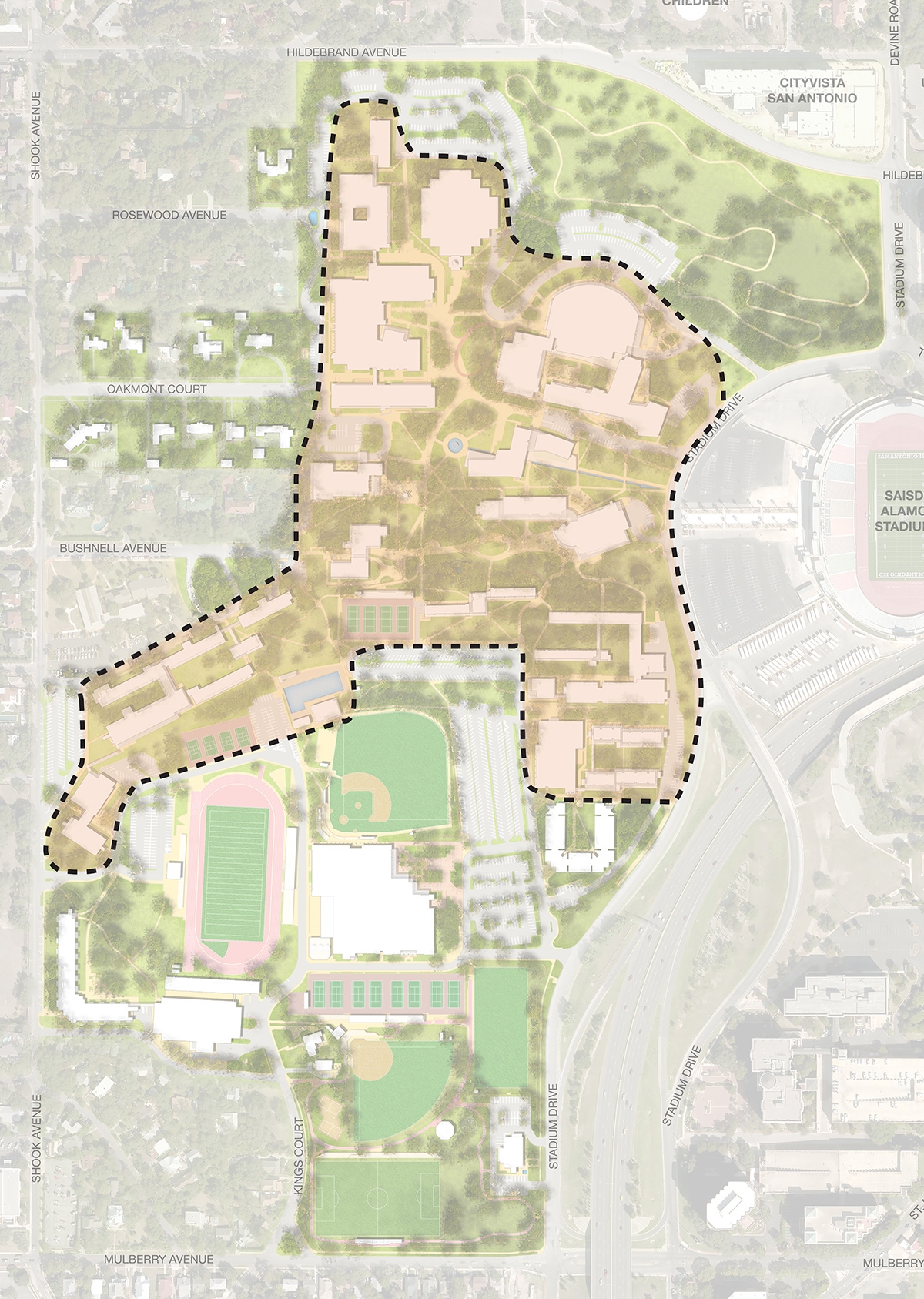Honoring the Past, Preparing for the Future
������'s Campus��Master Plan
We are heirs to a historic, mid-century modern masterpiece. Our Skyline Campus is a treasure for future generations, and the Campus Master Plan pairs the University’s academic mission and strategic plan to create a vision for the campus that is inspiring, functional, and enduring.
������'s full Campus Master Plan is available for viewing for those logged in to their ������.edu accounts.
Questions about the Campus Master Plan can be directed to Jim Baker, senior director for Facilities Services.
The ������ campus is distinctive with its significant collection of regionalist and mid-century modern buildings by a single architect,��O’Neil Ford. In the early 1950s, ������’s 14th president James Laurie and Ford created��a vision to build a campus on the site of an abandoned rock quarry. As the University built the Skyline Campus, the “Miracle on ������ Hill” transpired.
National Historic District
������ is listed on the National Register of Historic Places. It is��the only Texas campus to be designated a modernist historic district and one of just three in the country.

District of Distinction
43
acres
26
buildings
3
structures
The National Parks Service designated the ������ campus as a National Historic District in May 2018. The designation honors the architectural work of O’Neil Ford, who designed most of the University’s mid-century buildings.��These historic buildings and structures were built between 1952 and 1979.
Boundaries to the historic district encompass all of the University’s buildings designed by O’Neil Ford. The Campus Master Plan reinforces the historic nature of campus and establishes criteria that will guide decisions for renovations, enhancements, space usage, and new construction in the coming decades.
��
������’s Campus Master Plan is the result of a year-and-a-half-long collaborative planning process that engaged faculty, staff, students, alumni, and external stakeholders. The process was also informed by data from an interactive online survey; student focus groups; interviews with key stakeholders; a dining study; a housing demand study; and feedback from campus forums. The result: The University's first master plan since O'Neil Ford's original concept in the 1950s.
Signature Strategies
Northern Gateway
Establishing a northern gateway to provide an outward face to the University for visitors, for prospective students, and to our connections with the city of San Antonio.
Pedestrian Corridor
Enhancing a "corridor" through the core of campus that meanders from the upper to the lower part of campus. The "corridor" will improve pedestrian navigation without bifurcating the campus, and it will enhance opportunities for connections.
Wayfinding
A new wayfinding program to provide signage for better navigation of campus.
Green Space
Replacing of the two existing parking lots on lower campus with intramural green space.
Housing Improvements
Improvements to existing student housing and the addition of independent living options for juniors and seniors. The plan identifies the need for more single rooms, kitchens, and common space in residence halls.